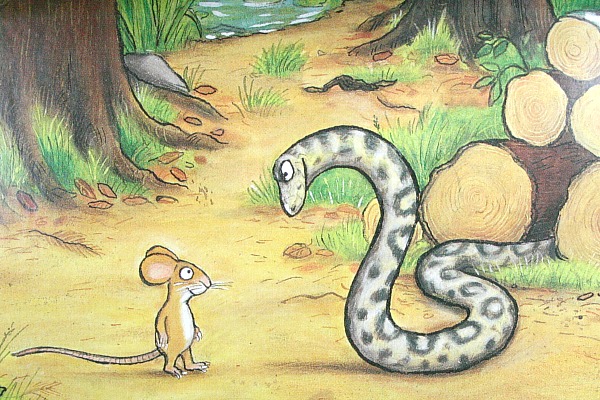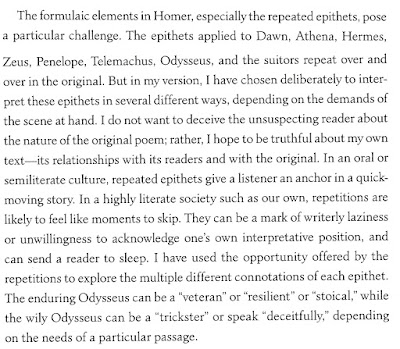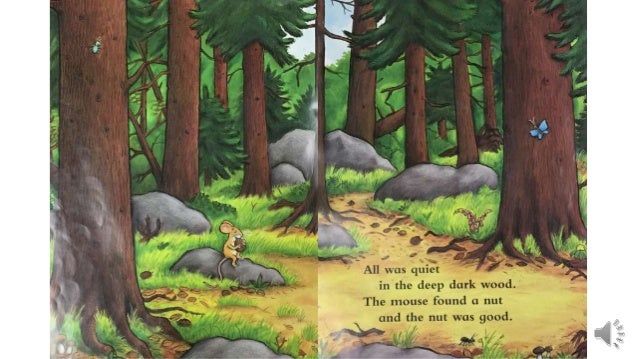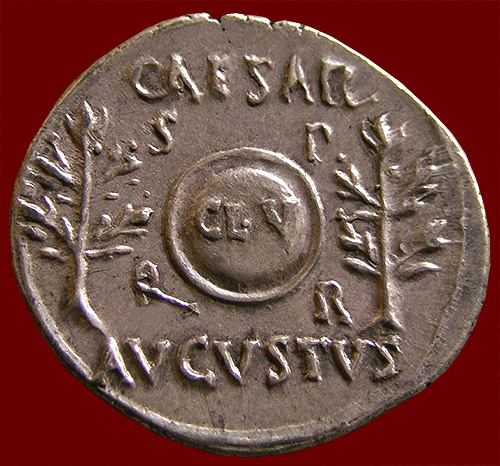Where are you going to Little Brown Mouse?
I have a weak spot for the Gruffalo, having read it endlessly, and in reading the introduction and notes to Wilson's Odyssey found myself coming back to it. I read it again this evening and it recrystalised my thoughts about how it takes the form of a mini epic.In the introduction (p.5) and translator's note (pp.83-4) to her new translation of Homer's Odyssey, Emily Wilson comments on how she has handled Formulaic Lines:
...
But there is a modern genre sharing many of the stylistic features of the Odyssey and showing how successful repetition, patterning and direct speech can be.
Julia Donaldson's Gruffalo shares with the Odyssey the tendency toward formulaic lines to mark a standard point:
Like The Odyssey this is a text designed to be heard rather than read so different rules apply and the verbal cues set up tension and in the final case "gruffal..." can be subverted. It might also be noted that the poetic form of the Gruffalo (though rhymed rather than metrical) adds to its impact.
That being so the features of reading the Gruffalo aloud (or Dr Seuss's Zinniga-Zanniga with which it shares many features) perhaps carry over into the Odyssey.
The direct speech demands voices and inflections - would one speak Polyphemus as one does Odysseus, anymore than the Mouse as the Gruffalo?
The poetic form always takes second place to the dramatic impact, so anybody rests and extends, as Donaldson signposts, on the ooooooooo of that last Gruffalo as one might pause in BkX127 when Odysseus,
"...drew out my sword
and cut the ropes that moored my dark-cheeked ship"
Surely we expect Odysseus to fight a few cannibals killing his men, he does have twelve ships of warriors capable of sacking cities, so the sword drawing requires a pause before he fails us again.
Beyond that one trope of the Odyssey, that it is better to have brains than brawn, to be Odysseus than the Cyclops, The Mouse than the Gruffalo is clearly stable across the millenia. The journey motif and the homecoming is likewise stable, though surprisingly Donaldson's mouse finds no reason to exterminate anybody: his/her (we are never told) nostos is altogether happier.
We can only mourn Donaldson's abject failure to invoke the muses, have an arming scene, or bring a deity or two on.










No comments:
Post a Comment